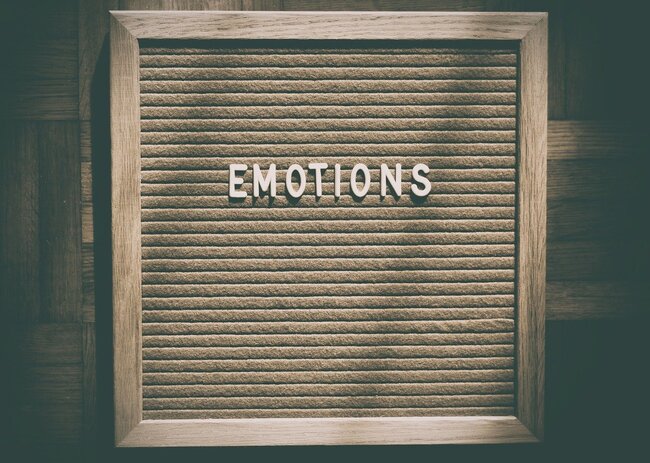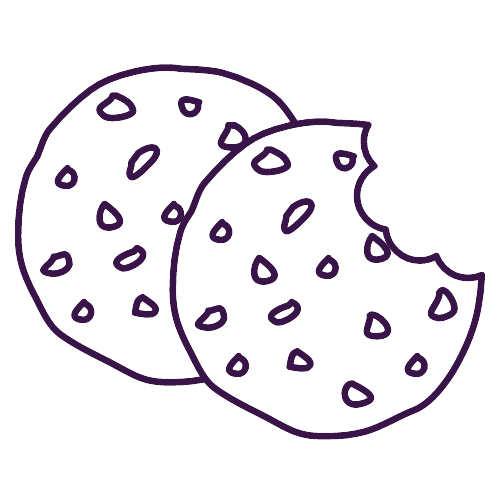
Eoin O'Sullivan
Managing Director and Psychotherapist
Healing the divide between thoughts and emotions – Is it all in our mind?

As I sit to write this article it is World Mental Health Day, I can hear the birds chirping and chattering. They barge their way through the queue to get access to the bird-feeder. The smaller sparrows are jostled out of position by the stronger starlings who in turn are cast aside by the bullying black crows. Those that are forced to wait can often be disappointed by the scraps that are left behind. Sometimes gathering enough courage to attempt to stand their ground they find themselves quickly and easily rebuffed, but they keep coming back. It takes strength, resilience, and bravery to stand up for our needs.
Where Are We Now
Considering this piece, I notice myself getting angry and frustrated. It feels as if those of us with an interest in, or concern for, our mental health often gets pushed aside, our feelings dismissed and devalued. We have been living off scraps for too long now. At a societal level the pandemic showed us how quickly we can react and adjust to an emergency situation. So why does mental health continue to be a source of stigma and embarrassment for so many people, why do we continue to feel as if there is something wrong with us if we don’t feel happy and content all the time? If someone has a stomach ache they go to the doctor, they rest and recuperate and yet if they are stressed or anxious the tendency is to judge and criticise themselves. We are conditioned to tell ourselves that our feelings don’t matter, that we shouldn’t be feeling the way we do, that we have nothing to complain about. In Ireland we have been living through an epidemic of mental health issues for decades and yet we are dismissed and devalued.
In February 2021 the C.S.O. published its research into the social impact of Covid-19. It found that almost 60% of respondents reported that it had a negative impact on their mental health, over 15% of respondents reported feeling depressed or downhearted all or most of the time. In September of this year RTE reported that the CEO of Mental Health Reform called for the Government to allocate the €10 million promised but not yet invested into mental health services. Research conducted by Maynooth University and Trinity College Dublin in March 2020 found that 41% of people reported feeling lonely, 23% reported clinically meaningful levels of depression, 20% reported clinically meaningful levels of anxiety and 18% reported clinically meaningful levels of post-traumatic stress disorder. Over the period of the pandemic the Government has announced delays to the establishment of registration boards for psychology, counselling and psychotherapy. These boards would establish standards for the provision of services and open the door to reduced cost private treatment through the ability to claim expenses against tax returns. Their reasoning? It is complicated. Covid-19 was complicated and remains to be so but the appropriate response was and is to provide adequate resources and strive for solutions, not to bury our heads in the sand.
Our Feelings are Valid
It seems that our mental health is, indeed all in our mind! Our emotions are dismissed and devalued. How often are we given the message that we shouldn’t get emotional about things?
Even the title to this day, Mental Health Day has problematic implications. A quick Google will tell you that ‘mental’ as an adjective relates to the mind with suggested similar words being intellectual, cognitive, rational, cerebral. The second use of ‘mental’ as an adjective, according to the Oxford Languages result, relates to disorders of the mind. It seems that our mental health is, indeed, all in our mind! Our emotions are dismissed and devalued. How often are we given the message that we shouldn’t get emotional about things? Well f*** that, I am angry and I feel as if I have every right to be. I am angry that we are taught to push our feelings aside as if they don’t matter. I am angry that people are struggling with their emotional wellbeing and not enough is being done to support and educate them. I am angry that people feel alone and isolated in their struggles even though mental health issues affect one in four of us. It is human to feel, try not to judge yourself or others for not being robots. It has been a very tough year, congratulate yourself for getting through it.
Some Sciencey Bits

Stick with me, I’m going somewhere. Anger, anxiety, depression, shame, guilt, grief, rejection, sadness, abandonment, dismissal and denigration all reflect emotional states that interact with but do not arise in the logical part of our brains. The prefrontal cortex of our brains plays a central role in our ability to process complex thoughts, the expression of our personalities, managing our emotions, regulating our social interactions and controlling our impulses. It does most of its development during adolescence and doesn’t finish its development until around the age of 25.
It connects with deeper, evolutionary older, parts of our brains such as the amygdala which forms part of the limbic system. This system is responsible for the freeze, flight or fight response. It helps to define and regulate our emotional responses. Stress, fear, anxiety, and anger are among the emotions that may provoke a response in our limbic system which then inform our prefrontal cortex that something is going on which need to be monitored or engaged with.
The thing is that our older, deeper limbic system can be overwhelming for our shiny new prefrontal cortexes. In a freeze, flight or fight response our sympathetic nervous system is activated and it happens as if our lives depend on it. Before we have time to think our heart rate increases, blood flows to our muscles in preparation to flee or fight, our pupils dilate, and we can lose the ability to think rationally or even speak as our efficient brains decide that this is a waste of time and energy when we are under extreme threat.
The limbic system also relates to the parasympathetic nervous system which is active when we are at ease, our breathing and heartbeat slow down, our muscles relax, and we are in a state conducive to rest, relaxation, and repair. An interesting thing with our para sympathetic nervous system is that one of its main components is the vagus nerve. This nerve connects our brainstem to our abdomen carrying information top to bottom and vice versa. There is more truth in the cliché of ‘listen to your gut’ than you have perhaps given it credit for and we can definitively say that our emotions are not all in our minds!
Tying Things Together
I like to imagine our thoughts and emotions as being part of us but not defining us. Feelings aren’t facts and neither are thoughts truths. We tend to think about our feelings rather than to feel them. There can be a sense of intellectual investigation rather than emotional exploration into what is going on for us. Both parts of our-selves carry important information that, if we learn to listen to and appreciate, can point us to the path of wellbeing. If we open ourselves to our emotions without criticism or judgment, we can discover a new, deeper, more compassionate relationship with ourselves. One that has the potential for growth, recovery, and self-acceptance.
As I engage with my anger without judgment but with compassion my parasympathetic nervous system kicks in and I am better able to filter out the message. My limbic system is not overwhelmed, and my prefrontal cortex is not cut off but, in a state, to productively process the information my emotion contains. My anger tells me that I care, that I am passionate about what I am discussing, it tells me that I want to do something to change the situation. I can empathise with it and appreciate that if used appropriately it can provide the impetus to build better relationships and engagement. It can give me the energy to do what I want to achieve.
I like to image our thoughts and emotions as being part of us but not defining us . Feelings aren’t facts neither our thoughts are thruths.
What Can You Do?
Here are some tips to more healthily engage with your emotional life.
- Learn to listen to your emotions with compassion, they are trying to help you but sometimes their delivery makes them hard to hear. See what they are trying to ask for.
- Try to let go of the judgments and criticisms of ‘I shouldn’t be feeling this way’ or ‘I have nothing to complain about’. Emotions are not rational, they don’t need to make logical sense but if you can open yourself to them, you might find they make perfect emotional sense.
- Play with the story you have told yourself around your emotions. Grief can be a sign of how deeply you love, sadness can be an opportunity to care for yourself and seek comfort, anxiety may be a sign that you might need to be more compassionate to yourself or that you are taking on too many things.
- If feeling overwhelmed, breathe. Slow deep breaths nudge the vagus nerve towards the para sympathetic nervous system. Place one had on your chest and another on your belly. Slowly breath in and out feeling your stomach rise and fall with each breath.
- Journal, write down those thoughts and feelings that are bothering you. Let them out and leave them on a page. Try not to judge what you write, it is just part of a story you are telling yourself at that particular moment.
- Consciously tell yourself, verbally or imaginatively, that it is ok to have the thoughts and feelings that you may be having. They are part of you but not the whole of you. There is more to you than you realise.
- Set some boundaries, give yourself a time to worry or be anxious or feel however you are feeling and then let it go, if appropriate. Should the feeling or thought return commit to giving it more attention at a time that is suitable for you. I sometimes think of emotions as children. The logical part of their brains have not developed fully, they can seem almost entirely emotional. If a child is looking for attention and they are ignored they will escalate their demands. They can be soothed with consistent, appropriate, boundaried consideration.
- Talk about whatever is going on with someone that you trust and who you know will have your best interest at heart even if that interest includes compassionate challenge.
- Remember that things change, you have not always felt this way and will be able to find joy again.
- When you sense a strong emotional reaction in yourself give it time, see if you can notice an old wound that has been activated and may need attention.
- Give yourself permission to be human and not to know everything all the time. Life is for experiencing, not for perfecting. Mistakes happen to help us grow. Treat yourself as if you were your own best friend.

What Can We Do?
Changes start with the individual but together we are stronger. When we speak, we can also leave space to deeply listen. Understanding is the key to compassion, just as we have our own wounds and histories so too have those we engage with. Relationships are not about never having conflict but rather how those ruptures are resolved.
Remember those birds at the start of all this, they are all long since in their nests. The sparrow, the starling, and the crow each have their needs, their families to feed. We live in a world of limited resources, and we will never all be able to get everything that we want. We have the right to stand up for ourselves and to recognise when things need to change. The pursuit of perfection is a road to nowhere but the striving for improvements is always worthwhile. We can understand where each other is coming from and empathise with our differing situations whilst also protecting our own boundaries. Good enough can be good enough but we may have to struggle to get there.
Above all have hope. Things are changing, we are freer than ever to talk openly about our mental health and emotional wellbeing. We can let go of the judgments and criticisms of the past and create better relationships with ourselves, others and the world around us. Be the change you want to see.








